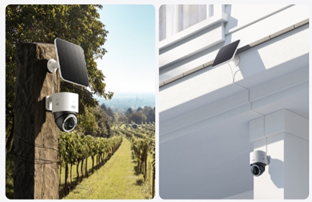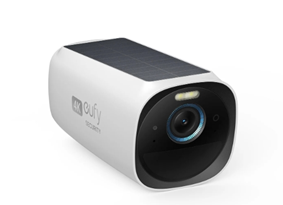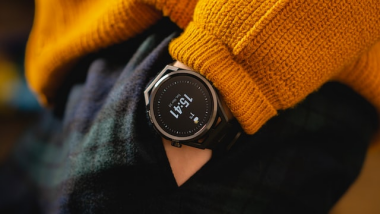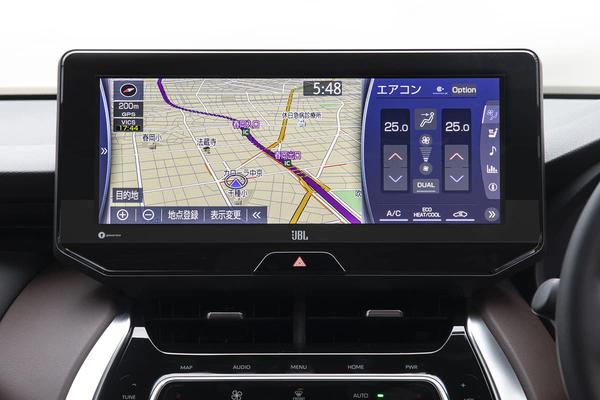How to Compare Different Outdoor Security Camera Models?
Choosing an outdoor security camera might seem straightforward until you realize how many options exist on the market today. The right security camera can deter burglars, help identify package thieves, and give you peace of mind when you're away from home. However, with dozens of models offering different resolutions, connectivity options, and smart features, making the wrong choice could leave you with blurry footage, unreliable alerts, or a camera that fails in bad weather. A proper comparison helps you avoid these pitfalls by focusing on what truly matters for your specific needs. In this article, we'll walk through the key factors you should consider when evaluating outdoor security cameras to ensure you get the best protection for your home.

1. Compare Video Quality & Resolution
Video quality is arguably the most important feature of any security camera because it determines whether you'll be able to identify faces, license plates, or other critical details. While 1080p Full HD resolution has been the standard for years, many cameras now offer 2K or even 4K resolution for sharper images. Higher resolution becomes particularly important when you need to zoom in on footage after an incident occurs. For example, a 4K camera might clearly show a burglar's face from 30 feet away, while a 1080p camera might only provide a pixelated image at that distance. However, keep in mind that higher resolution requires more storage space and bandwidth, so balance your need for clarity with practical considerations like your internet speed and storage capacity.
2. Evaluate Connectivity & Power Options
Outdoor security cameras typically connect via Wi-Fi, but some models offer Ethernet ports for more stable wired connections. Wi-Fi cameras are easier to install but can suffer from signal issues if placed too far from your router. Power options vary widely too - battery-powered cameras offer the most flexible placement but require regular recharging, while wired cameras provide continuous power but need professional installation in many cases. Solar-powered cameras present an excellent middle ground for many homeowners, automatically recharging during the day while operating at night. Consider your home's layout and your willingness to perform maintenance when choosing between these options. For instance, a camera above your garage might do fine with solar power, while one monitoring your front door might be better served by a wired connection.

3. Assess Smart Detection Features
Modern security cameras go far beyond simple motion detection. Advanced models can distinguish between people, vehicles, animals, and even specific sounds like breaking glass or alarms. These smart detection capabilities significantly reduce false alerts from passing cars or rustling leaves. Some cameras offer customizable activity zones, allowing you to focus on specific areas like your driveway while ignoring others like the street. Facial recognition takes this a step further by alerting you when familiar faces (like family members) appear versus strangers. When comparing cameras, think about which detection features would be most useful for your property. A homeowner with pets might prioritize animal detection to avoid constant alerts, while someone living near a busy road might value vehicle detection more.
4. Examine Storage & Data Security
How your camera stores footage affects both convenience and security. Cloud storage allows you to access recordings from anywhere but often requires monthly subscriptions. Local storage options like SD cards keep your data private but can be stolen or damaged along with the camera. Some systems offer Network Video Recorders (NVRs) that store footage securely inside your home. Data security is equally important - look for cameras with end-to-end encryption to prevent hackers from accessing your feeds. Two-factor authentication adds another layer of protection by requiring a second verification step when logging in. Consider how much historical footage you need to keep when evaluating storage options - while 24 hours might suffice for some, others might prefer weeks of recorded video.
5. Consider Durability & Installation
IP Weatherproof Ratings Explained
Outdoor cameras must withstand rain, snow, dust, and extreme temperatures. The IP (Ingress Protection) rating system indicates how well a camera resists these elements. Look for at least IP65, which means the camera is dust-tight and protected against water jets from any direction. IP66 adds protection against powerful water jets, while IP67 allows temporary immersion in water. Cameras rated IP68 can withstand continuous immersion and are ideal for flood-prone areas. Beyond the rating, consider the camera's operating temperature range if you live in particularly hot or cold climates. Some high-end models include built-in heaters or fans to maintain performance in extreme conditions.
DIY vs Professional Installation Requirements
Installation difficulty varies significantly between camera models. Wireless battery-powered cameras are typically the easiest to install, often requiring just a screwdriver or adhesive mount. Wired cameras usually need more extensive setup, possibly involving drilling through walls and running cables. Some systems require professional installation to ensure proper placement and wiring. When comparing cameras, honestly assess your DIY skills and willingness to climb ladders or work with electrical connections. Also consider whether you'll need additional equipment like junction boxes or weatherproof conduit for certain installations. The easiest camera to install isn't always the best choice if it compromises on features you need.
Conclusion
When selecting an outdoor security camera, it’s essential to consider your specific needs and home environment. Start by identifying what features are most important to you, such as crystal-clear video quality, advanced detection capabilities, or ease of installation. The eufy’s powerful security cameras stand out as a great choice, offering features like 4K resolution, smart AI detection, 360°coverage, local storage, and weather resistance. As a trusted brand, eufy ensures quality and reliability, making it a smart investment. Remember, the most expensive camera may not be the best for your situation, while the cheapest option could lead to greater expenses down the line if it doesn’t adequately meet your needs.















